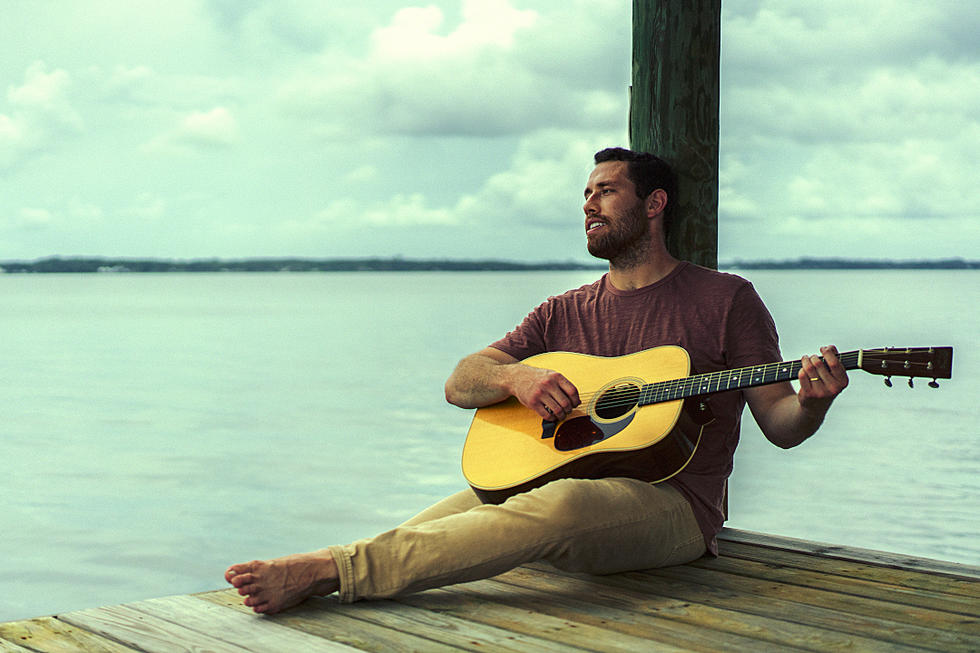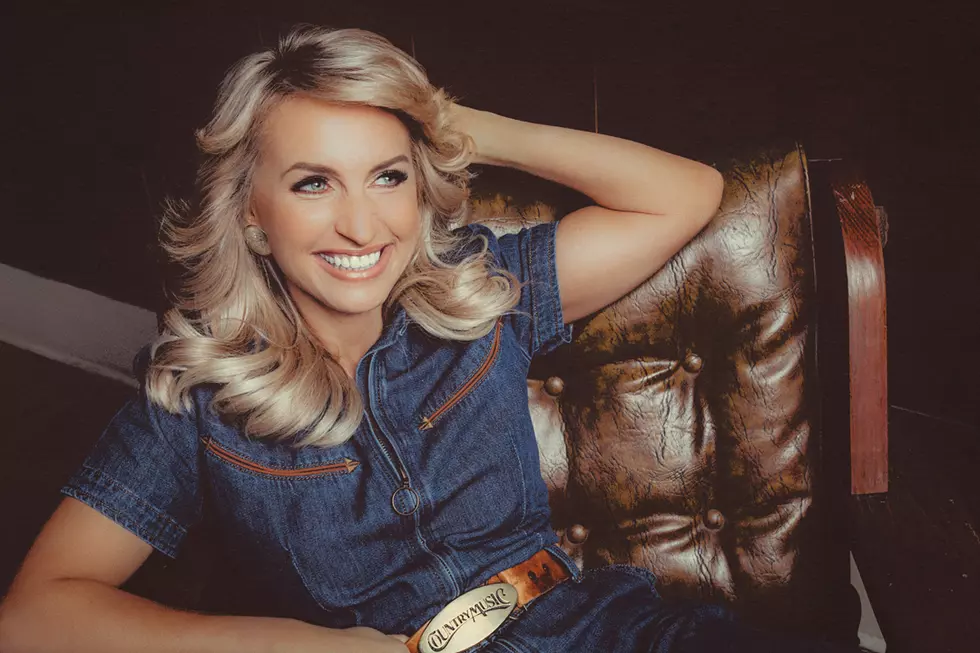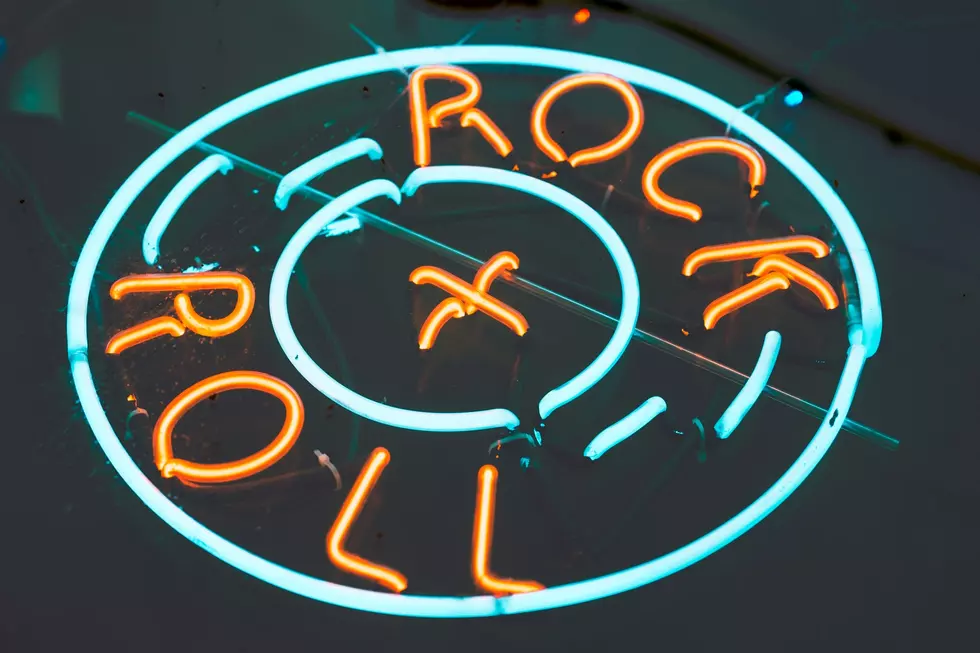
Jordan Fletcher Explains the ‘Cathartic’ Experience of Bringing His Story to Life With ‘Death and Taxes’
In the beginning — before his record deal, and before he started work on a full-length album — Jordan Fletcher just wanted to make music that he could pass down to his 19-month-old son, Maverick.
"Before I knew it was gonna be an album or anything, it was supposed to be just songs for my son," Fletcher tells Taste of Country. Becoming a dad made the singer examine his past, including his relationship with his own father, who died when Fletcher was just 11 years old.
"I was kind of running down my own situation with my dad, who passed when I was young, and wanting to leave something for my son," he continues. That's how he came to write his new country radio single, "Death and Taxes," a song that sums up the simple life lessons Fletcher learned from his dad — and ones he hopes his son will learn from him one day.
"Death and Taxes" is by no means the only autobiographical song that Fletcher has written. All four of the tracks on his January 2022 EP, True Stories, are just that: True, and ripped straight from the pages of the singer's own life. Fletcher says he never considered making an album any other way — he's written more general, commercial country songs for other artists to cut, and enjoyed the process, but for his own artist project, he wanted autobiography and truth-telling to be his calling cards.
Still, nothing could have prepared him for how gratifying it would feel to see his stories reflected back at him as finished, recorded studio songs.
"It just feels really good to be seen and heard," the singer continues, "And I didn't recognize that until I listened back. We were, like, halfway through the recording process [of an upcoming new album], and I was listening through all these songs. I had, like, 20 at the time. And I remember listening through all of them, and I actually cried when I was listening to it. I remembered writing them and I knew what they were about, but it wasn't until I heard them all that I was like, 'Man, I feel so seen, so heard.' Such an incredible experience."
Just listening to the songs was powerful enough; then, there was the added experience of seeing fans discover them and make them their own. Fletcher says he didn't expect listeners to relate to his songs so viscerally — they were written specifically about his own experiences, after all — but he soon found that fans could apply their own stories to the emotions of the song, even if specific lyrics didn't quite fit their experiences.
As an example, he brings up "Firebird," one off the songs off the True Stories EP. The song illustrates his enduring love for his dad — and the moments he wishes they hadn't missed out on — through an old Firebird car his dad owned, that he learned to drive in and kept around for years.
"I remember thinking, 'This [song] is for me, this is to work some stuff out. This is a song about my dad and a very specific car,'" Fletcher says, thinking back to when he wrote it. "And then I found that people were reaching out, and all the comments were like, 'Yeah, this reminds me of my grandma's Buick,' or whatever. The thing that was so humbling was that I wasn't anticipating people putting their humanity in a song that was about my life, and it gave more than I ever expected. That was encouraging."
Fletcher's songs might be diaristic, but unlike entries in a journal, they're meant to see the light of day.
"One thing that I've found since I've been writing is that once I finish a song, it's not mine, you know what I mean? I got everything I needed out of it in the writing," he explains. Once a song's out, the most gratifying outcome is when he can connect to a listener, or make them feel less alone.
Still, the country writer's most important, most gratifying listener reaction won't come for several years, until his son Maverick is old enough to listen to and understand the songs. For now, though, just the experience of bringing personal songs home to his family has some healing power for the singer.
"I get to come home and play [my wife] the song, or play it to Maverick as a lullaby," he says. "It always is just this cathartic thing that goes along with all these songs ... but I think it's more about excitement of what he'll think when he gets older, gets to hear it and know what it means."
50 Best Country Love Songs
More From KIKN-FM / Kickin' Country 99.1/100.5
![Mackenzie Carpenter’s ‘Jesus I’m Jealous’ Cuts Deep [Exclusive Premiere]](http://townsquare.media/site/204/files/2022/11/attachment-mac-carpenter.jpg?w=980&q=75)
![Shane Profitt’s ‘How It Oughta Be’ Is a Lesson in Country Hitmaking [Listen]](http://townsquare.media/site/204/files/2022/11/attachment-Shane-Profitt-Picture.jpg?w=980&q=75)

![Foo Fighters’ Chris Shiflett Finds His Truth in Latest Solo Effort, ‘Born & Raised’ [Interview]](http://townsquare.media/site/204/files/2022/09/attachment-chrisshifletttoc.jpg?w=980&q=75)






